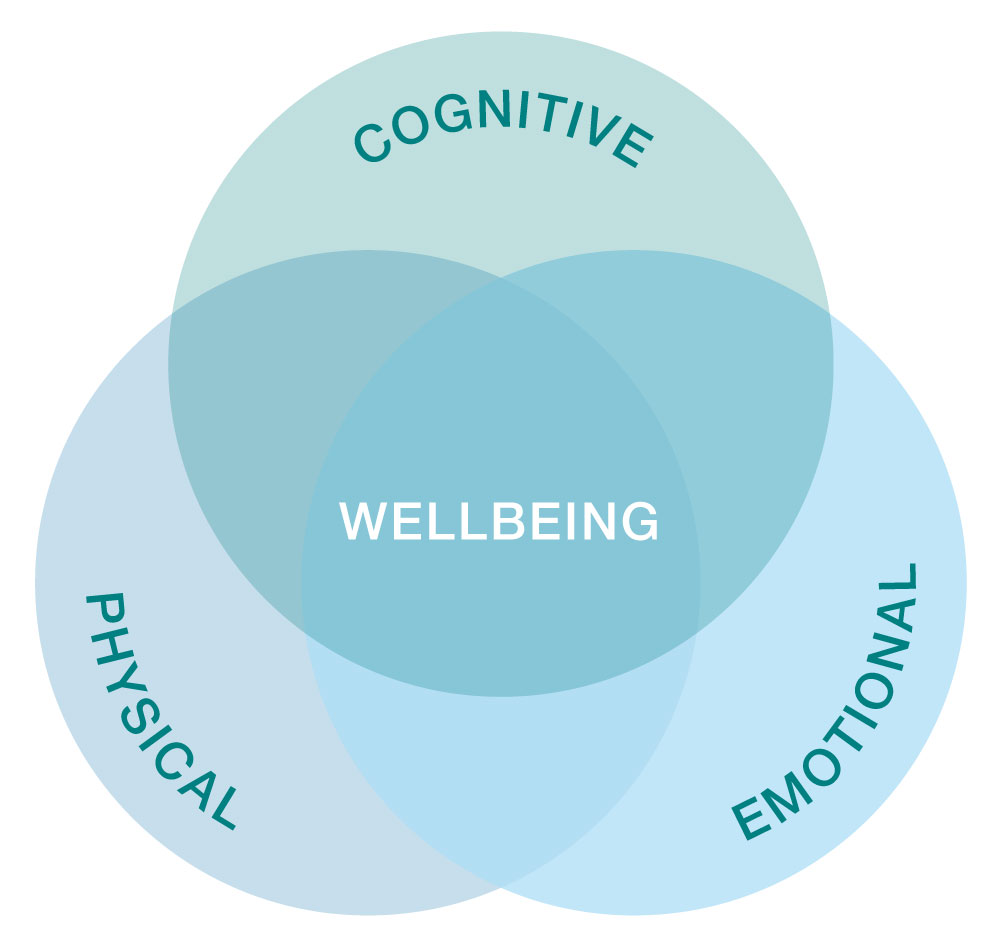Emotional Regulation and Cognition: A Multidirectional Relationship
Your brain and body are a dynamic structure that allows—and requires—your physical, mental, and emotional health to work together tridirectionally. When you are emotionally well, your cognition and physical wellbeing benefit—and vice versa. When you are cognitively unwell, your emotional and physical wellbeing suffer—and vice versa.

While this fact of complex structures is fairly implicit, it’s easy to overlook the magnitude of influence that each branch of health has on the other—especially when it comes to the less concrete emotional and cognitive branches and the ambiguity that often accompanies depression, anxiety, and other stress disorders.
When a person sustains a traumatic brain injury (TBI)—whether mild or severe—they can experience sudden and lasting cognitive impacts: an experience that can create extraordinary amounts of stress and apprehension.
The prospect of unpredictable but weakened cognitive function creates uncertainty in life as a whole: without the ability to perform at the same level, you may begin to consider the stress-inducing idea that your life will start to fall through the cracks and that you may not be able to sustain the life you’ve built for yourself and/or your family.
Whether as a result of a TBI or a known disorder like Alzheimer’s disease, the need to self-limit due to impaired cognition can lead to major depressive symptoms too.
It’s important to note that experiencing substantial emotional impact when your cognitive function is diminishing is expected and natural—because emotions, just like our physicality and cognition, are a fundamental part of our being as humans.
Of course, just as impaired cognitive function can take a toll on a person’s emotional wellbeing, so can one’s emotional wellbeing impact their cognitive function. In fact, emotional dysregulation can have a substantial impact on attention, memory, and decision-making abilities.
Attention
Depressive thoughts, money stress, worries about the future: they distract your mind and hinder the otherwise limitless bounds of your brain. Thinking requires a lot of energy, and when your brain is navigating adverse emotions, it uses some of this energy, diminishing your capacity to think as hard and maintain focus on the task at hand. With emotional dysregulation, you might find yourself:
- Making simple mistakes at work or at home
- Losing track of time or your surroundings
- Struggling to tune out environmental distractions
- Missing portions of conversation or instruction
- Feeling particularly overwhelmed by challenging tasks
Memory
The distractibility brought on by emotional dysregulation can lead to problematic memory difficulties too. In the face of unusual amounts of stress, depression, or an anxiety disorder, you might find yourself:
- Frequently losing everyday items
- Running late or missing appointments
- Immediately forgetting new information, like a person’s name
- Forgetting parts of a conversation or instructions
- Needing to re-read text
Decision-making
When extra energy is expended on emotional dysregulation and our brain’s attentional capacity is reduced, we have less room for analysis; and even the simplest decisions, like what to wear or where to eat dinner, can feel like challenging deductions. When emotionally dysregulated, you might find yourself:
- Feeling easily overwhelmed
- Taking longer to complete tasks
- Feeling fatigued by activities that require multiple decisions
- Struggling to begin an undefined project
The exacerbated symptoms of the multidirectional relationship between cognitive decline and emotional dysregulation is harmful to the quality of day-to-day life. But not only that, emotional dysregulation can impact long-term brain function too.
A 2019 study showed that repeated depressive episodes weaken both working memory and long-term memory, and another study showed that excess cortisol (that is produced by the brain in response to stress) can impact the hippocampus, which is partially responsible for memory consolidation.
Fortunately, there is so much we can do both to immediately uplift our emotional wellbeing and to enable our brains and bodies to better cope in the face of dysregulation. One way is to build stress resilience, or neuroplasticity. Flexing the brain may sound like an odd or unapproachable feat, but there are a number of very simple neuroplasticity exercises you can integrate into your daily routine that can, especially over time, enhance your brain’s flexibility.
1) Practice communicating your emotions.
To help yourself better understand your emotions, practice talking about the feelings you don’t ordinarily share with others. You can start by sharing, even just once a week, with a trusted friend or partner—or even writing in a journal.
2) Integrate breathwork into your daily routine.
Practice intentional breathing everyday at the same time—right when you wake up or before you go to sleep, for example. Simply commit to a few moments of slow, easy breathing.
3) Meditate to find calm.
Conjure up a childhood memory of a calm and peaceful place in nature. Try to focus on the senses of that memory to build somatic connections. Ask yourself: What did I feel then? What did I see, hear, or smell?
4) Move your body.
Gesture shaking can be a powerful way of externalizing and releasing emotion. Start with one body part, like your arm or leg, and shake it for a few seconds. Repeat this a few times to help your nervous system recalibrate.
Through mental and physical exercises like these, you can begin to strengthen and support your brain. However, in the face of a traumatic brain injury; cognitive disorder; or persistent depression, anxiety, or other stress-related disorder, it’s important to support yourself with additional treatment.
Our team at the Brain and Behavior Clinic can help. We develop personalized treatment plans that address one’s unique set of physical, emotional, and cognitive symptoms to reinstate optimal cognitive function and emotional wellbeing.
Whether you’re struggling with the emotional impact of a cognitive impairment, the cognitive symptoms of an emotional disorder, or both, your experience is valid and your emotional wellbeing matters.
Schedule a consultation with one of our neuropsychologists to learn how we can help you.
You May Also Like...
Treating Post-Concussion Syndrome: Compensation Strategies
Treating Post-Concussion Syndrome If you’ve been in a car accident, fallen headfirst, or otherwise taken a blow…
What is Post-Concussion Syndrome (PCS)?
What is Post-Concussion Syndrome (PCS)? Post-concussion syndrome, or PCS, is a constellation of symptoms that…
Get Started Today
It’s not too late to recover and to prevent cognitive decline
The key to cognitive longevity is early action

